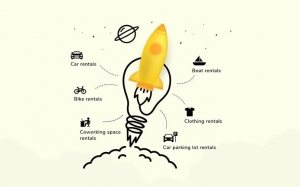A procurement contract is a legal document that binds a buyer and a seller. According to this, the former ensures that the latter receives supplies from him. On the other hand, the buyer agrees to pay for the specified amount of the seller’s products. It removes every guesswork and establishes firm groundwork for customer-vendor relationship.
There are different types of procurement contracts based on what you are looking to achieve. It also depends on whether you are open to taking risks. Elements of contract act as risk management tools that help everyone during situations like these.
What are the Different Types of Procurement Contracts?
There are various types of procurement contracts depending on your risk tolerance capacity and your organisation’s goals. You can categorise them into 3 types. Let us check them out in details:
1. Fixed Price Contract
This type of contract deals with a fixed price of the goods or services. You can also call them a lump sum contract. It fixes the cost of every material without taking market fluctuations. Some think it is perfect for essential supplies. It helps sellers to come up with an accurate estimate of their earning.
You can divide fixed price contract into three categories- firm fixed price, Fixed Price and Incentive Fee (FPIF) and Fixed Price with Economic Price with Economic Price Adjustment (FPEPA).
Firm Fixed Price
It is a basic contract that ensures that the seller is respecting the supplies’ predetermined rate. It is almost similar to those government projects in which overseeing sets their rates in advance.
Fixed Price and Incentive Fee
This type of procurement contract is beneficial for a supplier as the buyer pays an incentive. It takes place when the former exceeds the contractual terms. This arrangement ensures that buyer is receiving a specific volume of the supplies. It takes place when there is a shortage of a particular supply.
Economic Price with Economic Price Adjustment
In this type, a seller can adjust the price if there is a rise in the production cost for reasons that are not under his control. It acts as a cushion for vendors who have a connection with multi-year projects. Buyers go for it as well if they want to create an inventory for a product that is in demand.
2. Cost-Reimbursable Contracts
Here, a supplier takes care of developing, producing and delivering a product keeping in mind that the buyer will reimburse the cost. However, both of them can agree on a maximum admissible price. Its different kinds include:
Cost Plus Fixed Price
In this type, a vendor gets payment for all of its cost apart from a fixed sum. It ensures safety from all kinds of risks. It can be a certain percentage of the entire price. This also means that seller can be liable to some costs if he does not meet the contract’s conditions.
Cost Plus Incentive Fee
It covers the risk from the buyer’s end and involves an incentive based on the seller’s performance. Any fluctuation in this amount is out of consideration as it is predetermined in the contract. Upon the failure of meeting the contract terms, both the seller and buyer have to share the cost.
Cost Plus Award Fee
In this, a buyer reimburses the cost of production and provides an award fee to the seller.
Cost Plus Percentage of Cost
In this final type, a seller gets a full payment. This motivates him to enhance their sales. It is crucial to check the service for better results.
3. Time and Materials Contract
It includes every perk of a fixed cost as well as that of a cost reimbursement contract. Here, a buyer pays the vendor for investing time and materials in a project. Here, division of risks takes place between both the parties. Go for an upper limit to secure yourself from possible overruns.
Conclusion
This blog provides a good amount of information on different types of procurement contracts. It concentrates on three main types as well as some subtypes of these agreements. It aims to reach an agreement between the seller and the buyer. The company’s objectives as well as risks decide the kind of option both the parties go for.






